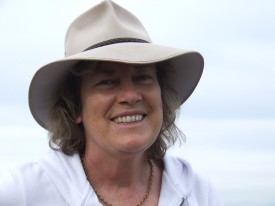Dr. Christine Jones
Life as we know it would not exist without microbes. But microbes cannot act alone. They behave both competitively and cooperatively by communicating through an array of chemical signals. Further, many actions performed by microbes require that their populations reach a certain critical mass. When there are only a few individuals, their behavior is different to when there are many. Research into density-dependent coordinated behavior - termed ‘quorum sensing’ - has increased exponentially in recent years.
The resistance of plant communities to pests and diseases and tolerance to drought, frost and nutrient deficiencies are strongly influenced by both quorum sensing (QS) and quorum quenching (QQ) in the soil microbiome. QS and QQ also help explain how diverse plant communities are able to function more effectively than monocultures. Researchers have long known there's more than physical complementarity involved - but until recently have not been able to explain how the soil microbial community transforms to a coordinated 'super-organism' once a tipping point - or threshold - in microbial populations has been reached.

